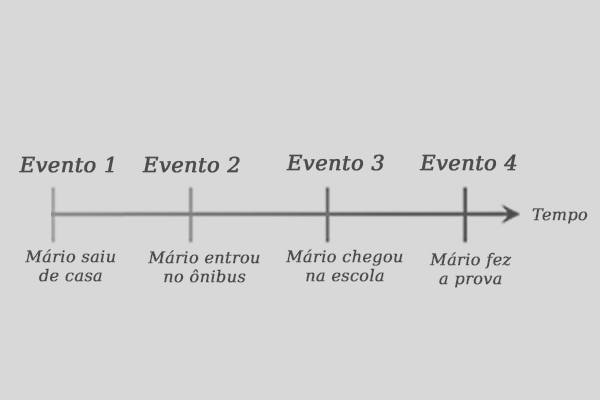Chronological is an adjective that defines everything that follows a chronology, that is, that follows a natural sequence of events over time.
It is said that something is chronological when it is organized, listed or described in the order in which it actually happened, taking time as a reference.
The concept implies the idea of consecutiveness and progression. Thus, if something is chronological, it is because it is inserted in a series of events, whether at the beginning, middle or end.
The term is related to chronology, a word originating in Latin chronos, which means time, and logos, which means study.
The antonym of chronological is timeless, which qualifies something that is not affected by the passage of time or that is not included in a group of events.
Chronological Time
Chronological time is time analyzed exclusively on the basis of clocks and calendars, as a consequence of the Earth's rotational and translational movements. It is the form of perception of time that gives age to things.
Examples:
Planet Earth is over 4 billion years old.
Mariana is 3 years older than Paula.

In the context of language, chronological time is the mode of expression naturally used in everyday life, as it describes events in a linear and successive way, as they happened.
Examples:
Today I woke up, took a shower and then went to work.
Tomas went downstairs and ran to the school.
Chronological Time and Historical Time
Chronological time should not be confused with historical time. The latter is used by historians to didactically organize historical science. Thus, historical time brings together economic, cultural and political aspects in order to catalog epochs, resulting in classifications such as Pre-History, Middle Ages, etc.
Chronological order
Chronological order is the form of organization of a set that adopts as a criterion the order in which each of the elements occurred in time, resulting in a cohesive and logical sequence. In this way, it is possible to organize movies, books, stories, documents, etc. in chronological order.
Examples:
Put these monthly reports in chronological order.
What is the chronological order of the Star Wars movies?
In the context of language, it can be used as a synonym for chronological time. However, the expression chronological order is more used because it has a broader sense and has a greater number of applications.

